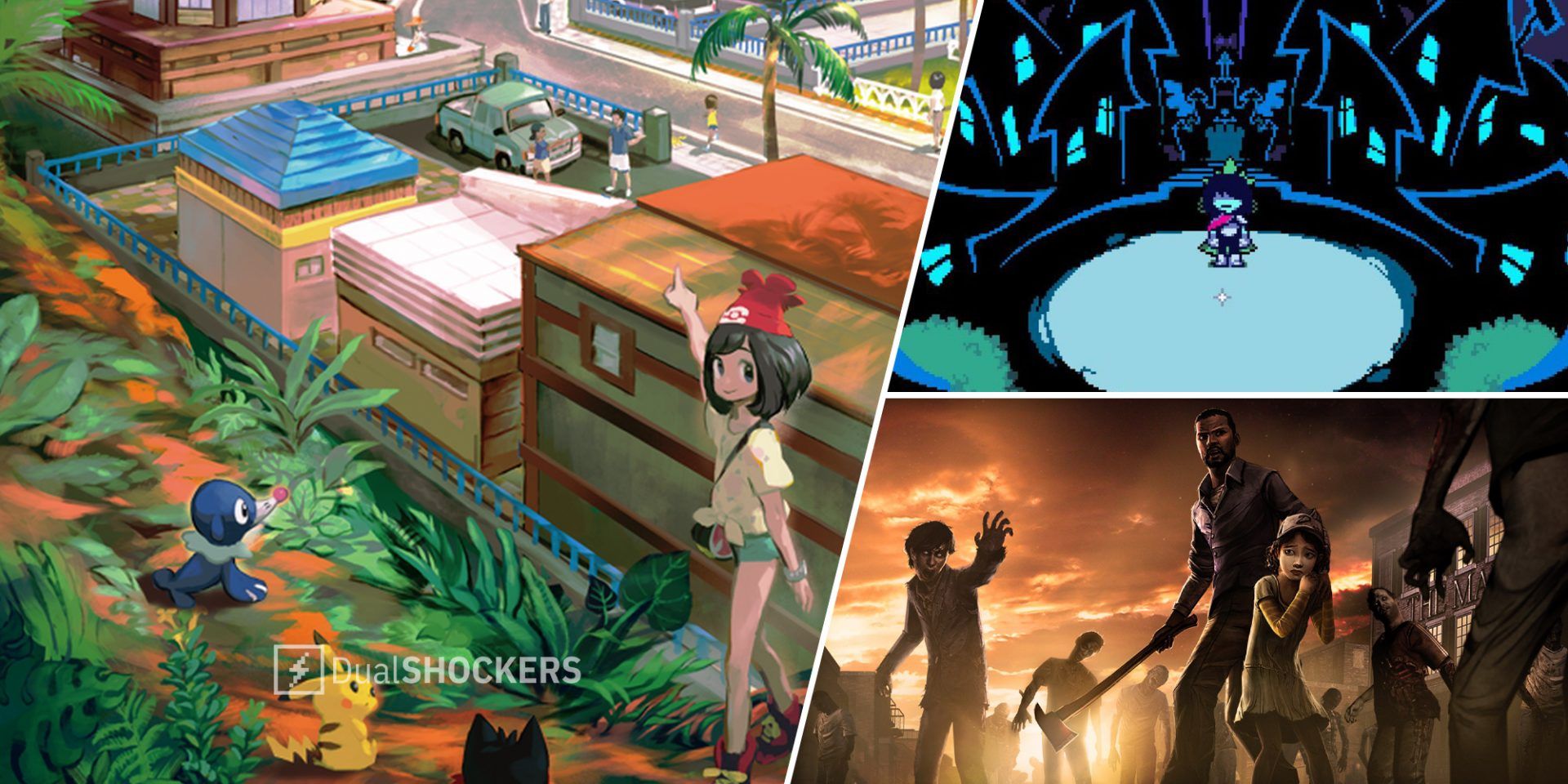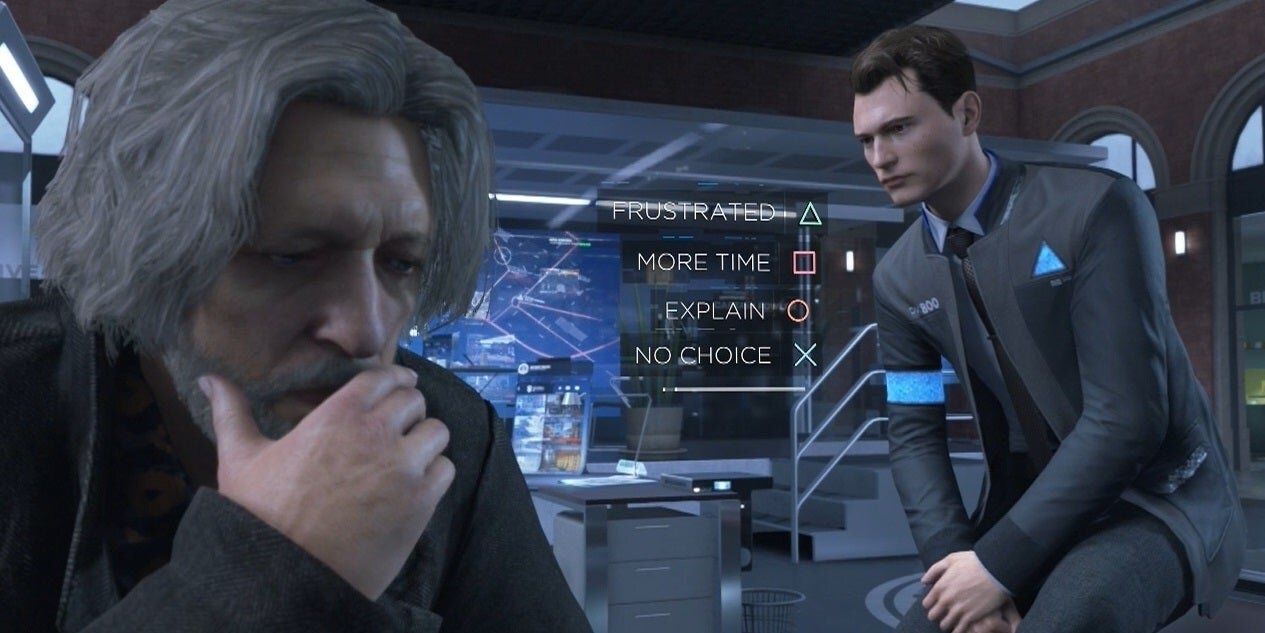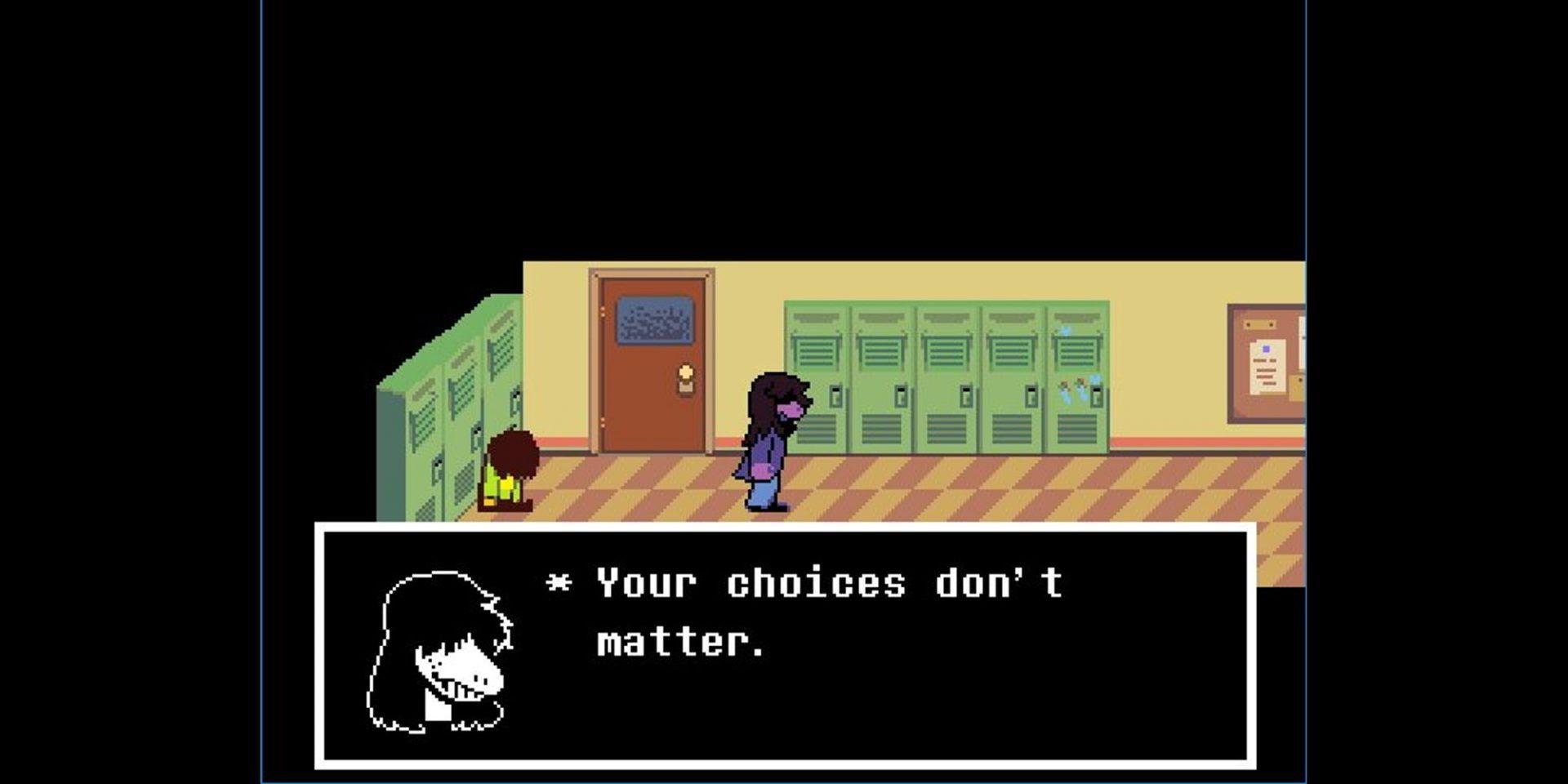Choices in videogames can be as small as choosing how to greet an NPC, or as big as deciding the fate of the entire universe. Games like The Quarry or Detroit: Become Human will have your decisions shape the entire story, while in others, like The Witcher 3, you feel the weight of your choices by the impact they have on regular (and often desperate) people. Whatever the importance may be, giving the player the ability to make a choice can lead to an experience that they can truly call their own, and have them coming back for more. However, not all games handle the choices they give players this way.
When you make a choice that can have an effect, whether it be on the end of a story or how an NPC feels about you, it usually gives you a sense of power and influence. That feeling can make a player feel like they are truly a part of the world they're in, since what they say or do things that can affect that world. On the other hand, there are games that fail to provide the player with this feeling from the choices they give them. That's usually because the choices don't really make a difference, or the differences aren't worth anything. The illusion of choice, in other words.
While there are many games that have done this, the modern Pokémon games are prime culprits. Some choices, such as Lillie asking you if you pick out your own clothes in Sun and Moon, just affect a few dialogue texts before the game continues on the main course. Other choices don't even change the dialogue. The answers you can choose when talking with Vlov about Hisui's lore in Pokémon Legends: Arceus both mean the same thing, and he'll answer in a way that accounts for either choice being selected. Decisions like these have been all over the Pokémon games since the sixth generation back in 2013, and nothing's changed about them since.
This isn't to say that the illusion of choice has to be a bad thing. Some amazing things can be done with it when it's used properly. Take The Walking Dead: Season One, for example. You can make many choices throughout the game that affect your relationships with other characters and how some events unfold. However, the illusion of choice comes in when the ending of the game will always be the same, give or take. The Walking Dead masks this well, however, and so it doesn't detract from your journey, which is why the illusion of choice it provides players works so well.
Even obvious illusions of choice aren't bad when done properly. An example of this is DELTARUNE. The game takes you through an entire process of creating a character, only for them to be thrown away when you're done. This sends an explicit message that, contrary to the first game UNDERTALE, the choices you make won't matter. This is a theme that persists throughout the rest of DELTARUNE's story as well. The game is self-aware about its illusion, and it uses that self-awareness to lend itself to a powerful message about doing whatever must be done to protect the people you care about.
The problem with something like Pokémon is that it offers neither choice nor a convincing illusion. When given choices, all it takes is to look at the options they give you and it's clear that it won't matter what you choose. The games don't make enough effort to hide this. On top of that, nothing else is done with the fact that the choices are the same or don't matter in the end. It keeps going, as if the game itself is oblivious to what most players know. It just wastes valuable time.
Games don't need to have choice-based gameplay. After all, there are many linear games without a single gameplay-altering choice in them, like the Monster Hunter games. Those types of games don't need important choices to immerse you into the world because that's achieved by other means, such as the beautiful presentation and the believability of the characters. In Monster Hunter Rise, you get immersed in the world because you grow to care for these characters as they face the hardships of the Rampage together. Small side-stories emerge, such as Minoto's desire to be more like her twin sister Hinoa, and they become more human.
Games don't need the illusion of choice either. If you don't have choices that matter, it's not necessary to make the player feel the contrary, especially if nothing clever is done with that illusion. There are other ways to give the player agency in the game, and to pull them into the story: compelling world-building and environmental storytelling, convincing sound design, believable characters, the list goes on. You don't always need to make 'meaningful choices' to feel part of the world.
Pointless choices can bring a game down, and games that have them would be better off focusing on other ways to engage the player, or at least build up that illusion of choice so it makes us feel something. Sometimes, offering the player no choice at all is the best choice a developer can make.



